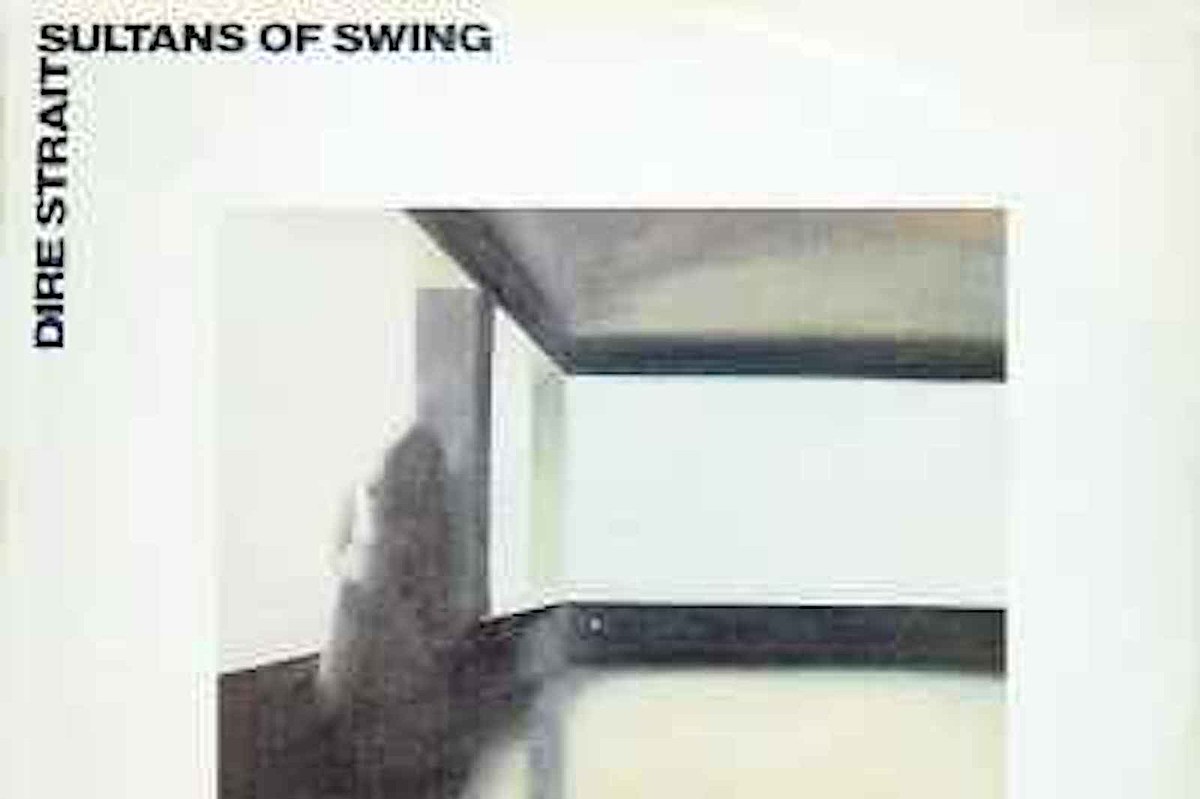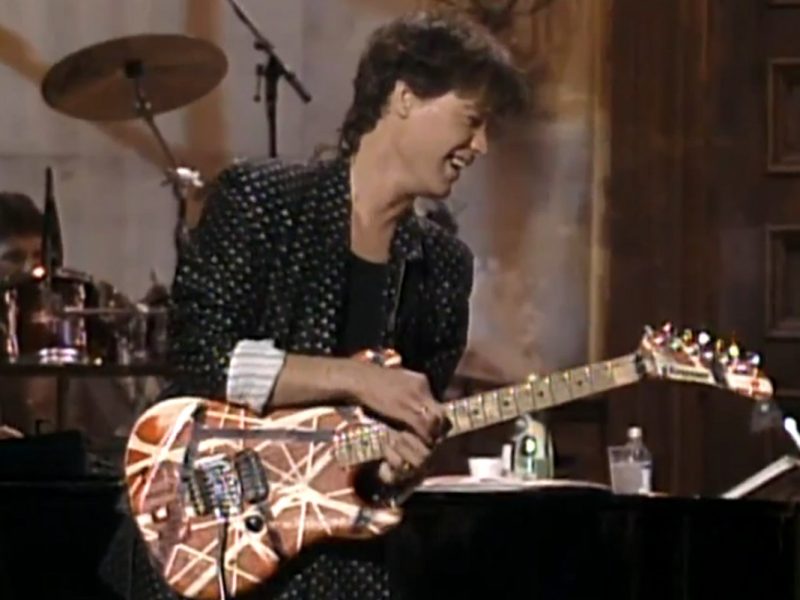It really was a dark and stormy night in 1977 when guitarist Mark Knopfler popped into a tumbledown bar in London and happened upon some song inspiration.
Inside, as Knopfler would later recall, was a mediocre Dixie cover band. “I remember asking them to play ‘Creole Love Call’ or ‘Muskrat Ramble,'” Knopfler told Joe Benson on the Ultimate Classic Rock Nights radio show in 2020. “I think they were amazed that somebody was in the pub who actually knew a few of the titles.”
The band eventually concluded their set and revealed their name, which got Knopfler’s full attention. “When the guys said, ‘Thank you very much, you know, we are the Sultans of Swing,’ there was something really funny about it to me – because sultans, they absolutely weren’t,” he told Rolling Stone. “You know they were rather tired little blokes in pullovers.”
The Sultans of Swing did not know it, but they had just planted the seed for what would become one of Dire Straits’ biggest hits. Shortly after, Knopfler penned an entire song, using a National Steel guitar, about his evening with the Sultans – complete with “guitar George” (which was, according to Knopfler, his real name) and a group of boys in the corner who weren’t all that interested in the band — “It ain’t what they call rock ‘n’ roll.” But something seemed missing.
Listen to Dire Straits’ ‘Sultans of Swing’
“I thought it was dull,” Knopfler later told Guitar World, “but as soon as I bought my first Strat in 1977, the whole thing changed, though the lyrics remained the same. It just came alive as soon as I played it on that ’61 Strat — which remained my main guitar for many years and was basically the only thing I played on the first album — and the new chord changes just presented themselves and fell into place.”
Not long after Dire Straits first formed, also in 1977, they recorded a five-song demo reel at Pathway Studios in London, which included “Sultans of Swing.” They were turned down by MCA. Seeking advice, they took the tape to DJ Charlie Gillett, presenter of Honky Tonk on BBC Radio London. “I do promise I will listen to it and I will give you a reaction,” drummer Pick Withers said Gillett warily told them. It turned out he liked “Sultans of Swing” so much that he played it on his show and two months later Dire Straits had landed a record deal with the Vertigo division of Phonogram Inc. They re-recorded “Sultans of Swing” in February 1978, working with producer Muff Winwood.
“They’d been playing ‘Sultans’ live for a year or so, so they knew it inside out,” Winwood, brother of Steve Winwood, told Music Radar in 2022. “Like all good bands, they’d made all the mistakes, knew the good bits and chucked out the bad. [Bassist] John [Illsley] and Pick were a great rhythm section, so I concentrated on getting the bass guitar and bass drum locked in tight together. Mark took care of himself; you just had to say ‘Go,’ and off he went.”
“Sultans of Swing” was released in the U.K. on May 19, 1978, a few weeks before it would appear on Dire Straits’ self-titled debut album, but the single failed to make any dents on the charts. “Radio wouldn’t play it, said it was too long,” Withers recalled. (The studio track clocked in at close to six minutes.) “Other [radio stations] said it’s too wordy, too many words.”
Watch Dire Straits Perform ‘Sultans of Swing’ at Live Aid
The track didn’t gain momentum until a full eight months later in January 1979, when the album was finally released in the U.S. “Sultans of Swing” soared to No. 4 on the U.S. Billboard Hot 100 and No. 8 on the U.K. singles chart, effectively securing international success for the then-fledgling band.
“It seems a long time ago now, but sometimes it just takes one track to change people’s lives, and that seemed to be what it did with us with ‘Sultans Of Swing,'” Illsley recalled in 2021. “When we first came to America, touring in America, that was all you could hear when you drove into every single city to do a gig. All we heard was ‘Sultans of Swing,’ and so, it was kind of everywhere – which was rather wonderful.”
It was a huge leap for the four-piece band that had been scrimping and pinching to make ends meet only a couple of years before, not unlike the Dixie cover band Knopfler had written about.
“People have said we were lucky, but I say: ‘Well, what does luck mean?'” Illsley told Classic Rock in 2023. “The fact of the matter is that it was a bloody good song, the band was pretty damn good and we worked bloody hard. And the only way you’re going to get anywhere is by being committed. So if something like that happens to you, it’s fantastic. Boy, was it exciting!”
Dire Straits Albums Ranked
They released only a handful of LPs during their brief time together, and each offers essential songs. But which holds up best?
See Mark Knopfler in 25 Interesting Rock Movie Facts



